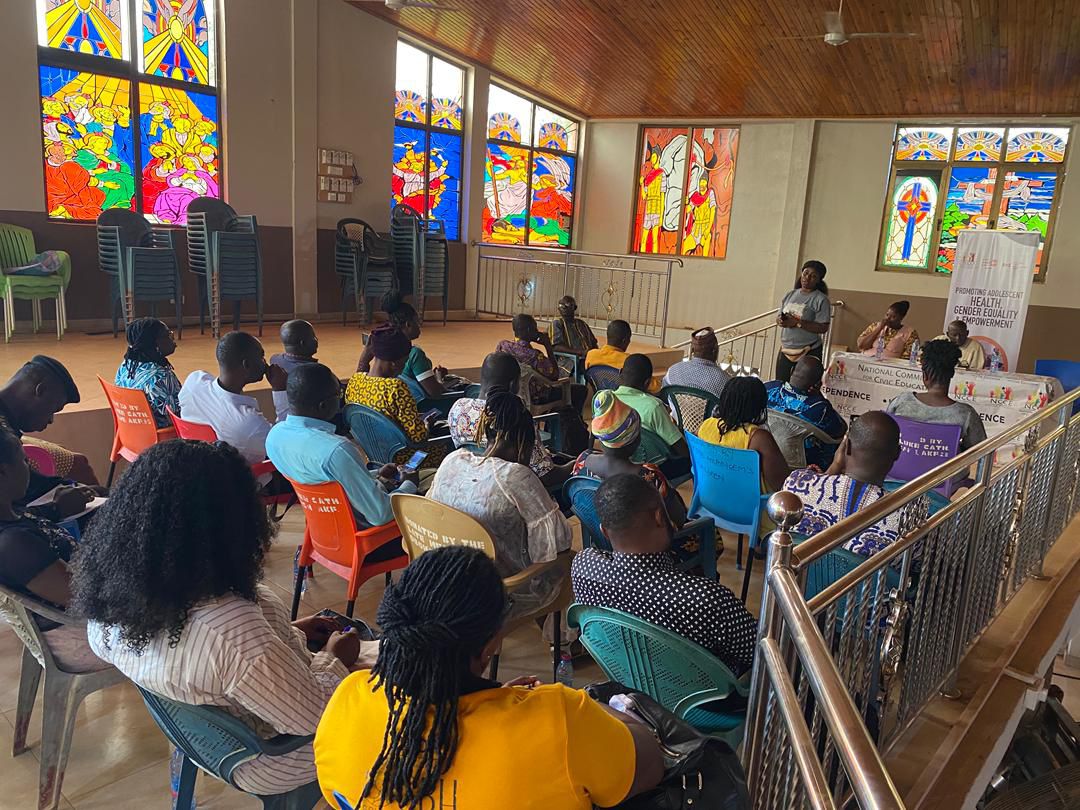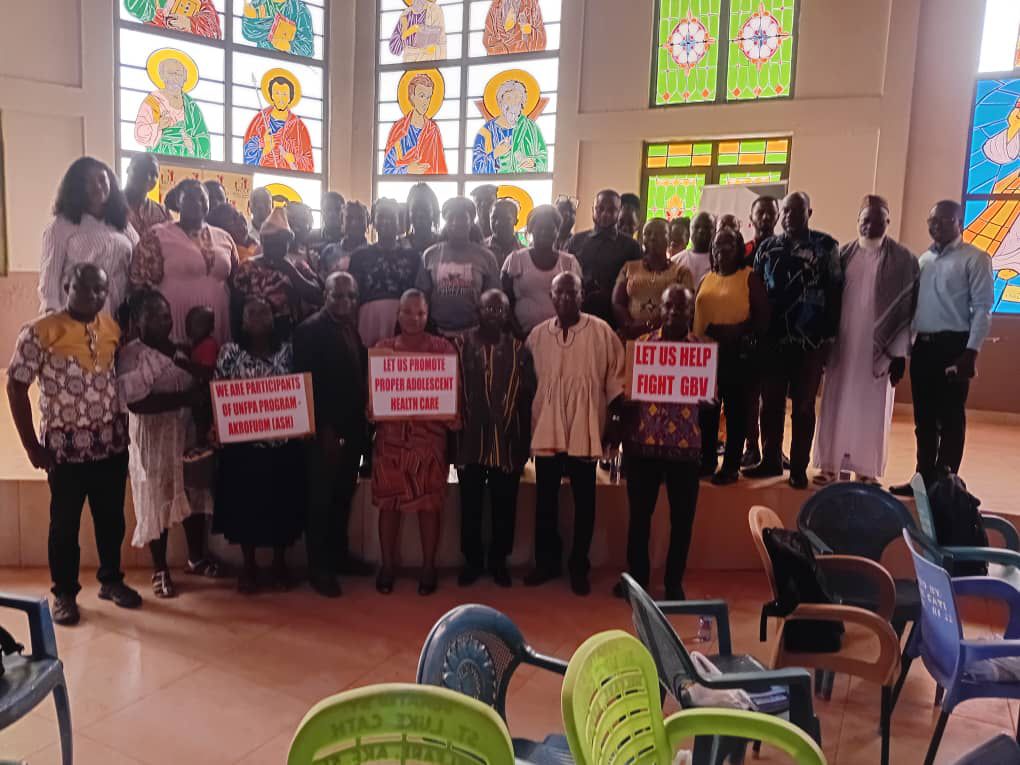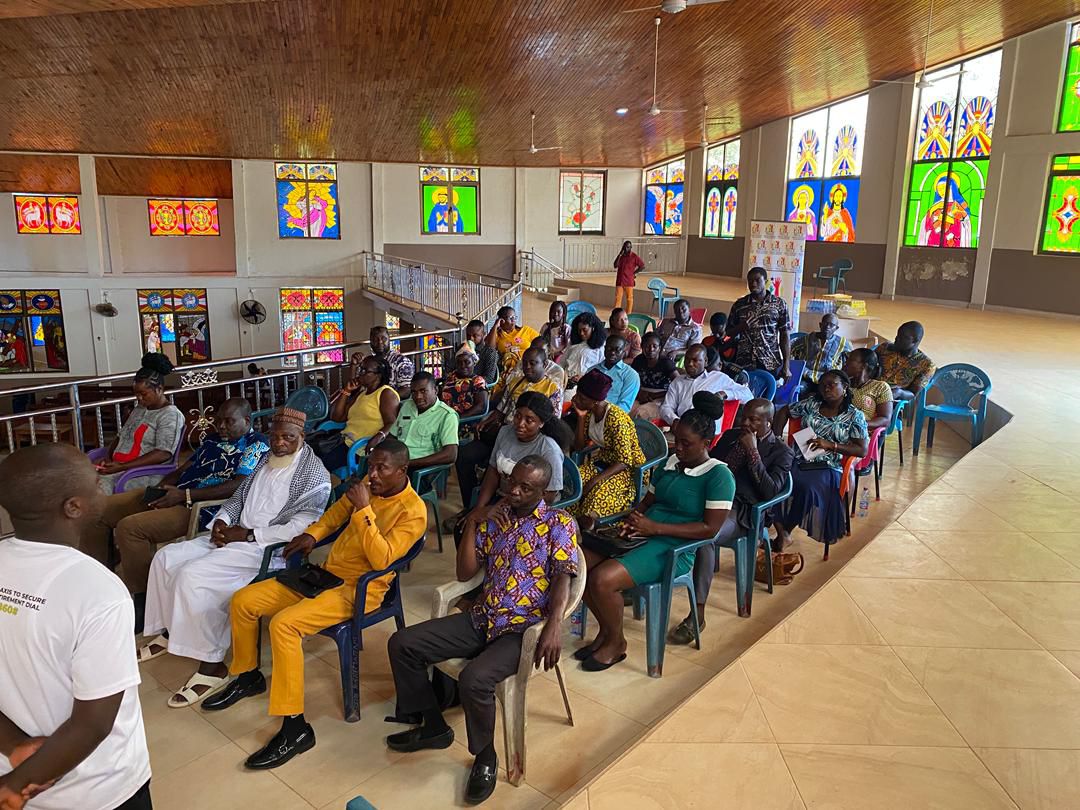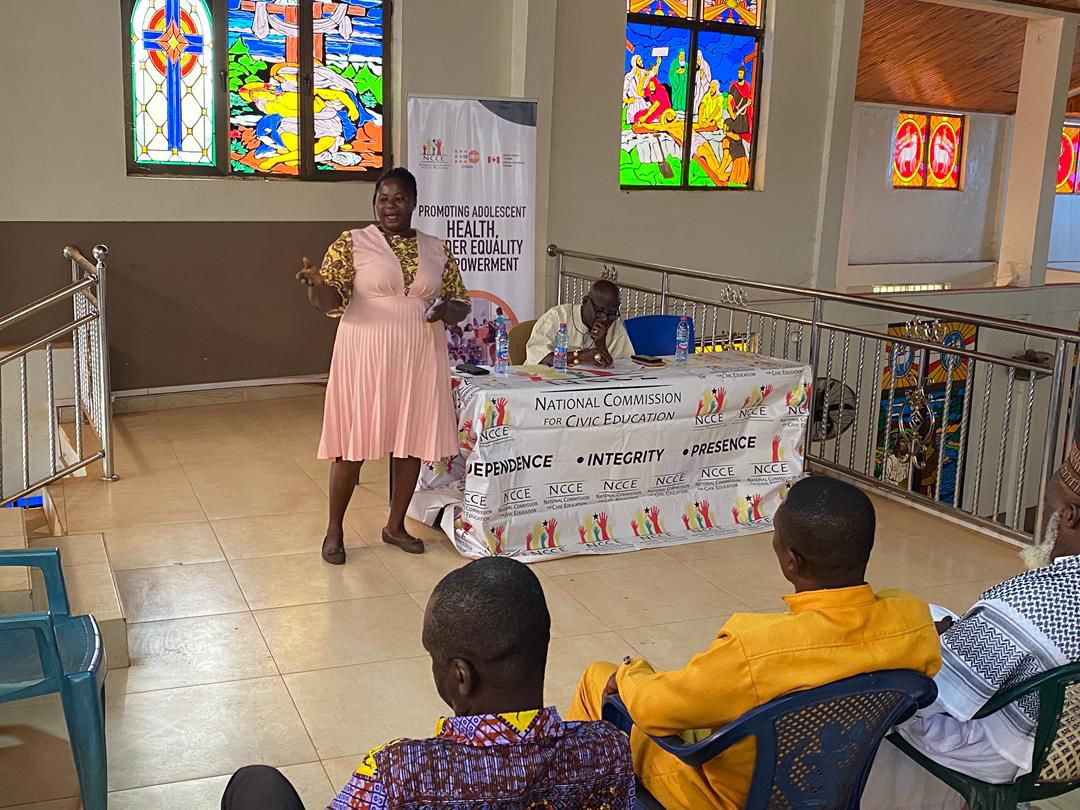The National Commission for Civic Education (NCCE), in collaboration with the United Nations Population Fund (UNFPA), has held a stakeholder engagement in the Akrofuom District to discuss key issues affecting adolescent reproductive health and gender-based violence (GBV).
The meeting brought together representatives from the Department of Social Welfare, Domestic Violence and Victims Support Unit (DOVVSU), Commission on Human Rights and Administrative Justice (CHRAJ), the Traditional Council, and leaders of youth and community-based groups.
The engagement sought to empower local actors to promote healthy adolescent development, reduce teenage pregnancies, prevent GBV, and strengthen community structures that support the well-being of young people.
In his remarks, Mr. Kassim Ali, District Director of the NCCE, described the dialogue as timely in light of increasing concerns about teenage pregnancy and school dropout rates. He noted that the growing incidence of broken homes and weak parental guidance continues to erode children’s development and social values.
“If we fail to secure the future of our young people, posterity will not forgive us,” Mr. Ali cautioned, calling on all stakeholders to take shared responsibility for the welfare of children and adolescents.
Mrs. Louisa Suglo, a representative from DOVVSU, expressed concern over the rising reports of gender-based abuses in the district. She emphasized the need for intensified community education on the various forms of abuse and the channels available for victims to seek help.
She added that many victims remain silent due to limited awareness of their rights, stressing that education and open dialogue are essential to breaking the cycle of abuse.
Mrs. Margaret Afriyie, the Adolescent Reproductive Health Focal Person, also highlighted the importance of sustained engagement with young people on sexual and reproductive health. She warned that increasing cases of teenage pregnancy and sexually transmitted infections (STIs) threaten the district’s human capital development.
She urged parents, teachers, and community leaders to offer guidance and support to help adolescents make informed life choices.
Participants at the meeting agreed to strengthen collaboration among institutions, traditional authorities, and local leaders to sustain education, advocacy, and preventive efforts at the grassroots level.
The programme was made possible with the support of UNFPA.




_
Follow us on our social media pages for more stories and posts from the NCCE.
https://www.instagram.com/nccegh/
https://www.facebook.com/nccegh/




Leave a comment